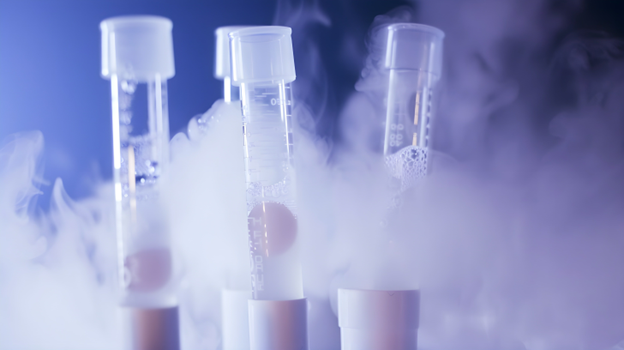As more women are focusing on their careers, education, or personal goals before starting a family, egg freezing has become a popular option for preserving fertility. Egg freezing, also known as oocyte cryopreservation, allows women to store their eggs for future use when they’re ready to have children.
What is Egg Freezing?
Egg freezing is a process where a woman’s eggs are collected, frozen, and stored for later use. This procedure helps preserve fertility, giving women the option to have children in the future, even if they are not ready to start a family right away.
The eggs can later be thawed, fertilized with sperm in the lab, and implanted into the uterus through in vitro fertilization (IVF).
Why Do Women Choose Egg Freezing?
There are several reasons why women choose to freeze their eggs:
- Delayed Childbearing: Many women today prefer to wait to have children until later in life, often to focus on personal, professional, or financial goals. Freezing eggs at a younger age can give them the flexibility to start a family when they are ready.
- Health Conditions: Some women may face health issues, such as needing treatments like chemotherapy, which could impact their fertility. Egg freezing allows them to preserve fertility before starting treatment.
- Age-Related Fertility Decline: As women age, their fertility naturally declines. Freezing eggs at a younger age, ideally before 35, offers a better chance of successful pregnancy later in life.
- Uncertainty About Timing: Some women may not have found the right partner yet or may want to keep their options open for having children in the future.
How Does the Egg Freezing Process Work?
The egg freezing process involves a few key steps:
- Ovarian Stimulation: Women are given hormone injections for about 10-14 days to encourage their ovaries to produce multiple eggs, rather than just one.
- Monitoring and Egg Retrieval: During the stimulation process, doctors monitor the development of the eggs with ultrasounds and blood tests. Once the eggs are ready, a minor procedure is done to collect the eggs from the ovaries.
- Freezing the Eggs: After the eggs are retrieved, they are frozen and stored until the woman is ready to use them.
- Using the Frozen Eggs: When a woman is ready to start a family, the frozen eggs are thawed, fertilized with sperm, and implanted into the uterus through IVF.
What Are the Success Rates?
The success of egg freezing depends on several factors, with age being the most significant. The younger the woman is when she freezes her eggs, the higher the chance of a successful pregnancy later. Typically, women under 35 have the best chances for success. However, success rates also depend on the number of eggs frozen and the quality of the eggs.
Is Egg Freezing Right for You?
Egg freezing is a personal decision that can provide valuable peace of mind for women who want to delay childbearing. It’s important to consult with a fertility specialist to learn more about the process, the benefits, and whether it aligns with your goals.
If you’re considering egg freezing or want to learn more, contact us today to schedule a consultation with one of our fertility experts. Let us help you take control of your reproductive future.










